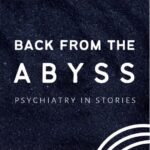
How I Do Ketamine Differently
My practice is very intentionally not a “ketamine clinic,” but rather a psychiatric practice that provides ketamine infusions as a treatment option.
I pride myself on prioritizing honesty, integrity, and safe, evidence-based care: despite what other ketamine providers may tell you, ketamine isn’t for everyone. For clients who are clinically appropriate and are likely to benefit (see “Who’s a Good Candidate for Ketamine?” below), this treatment help to alleviate significant suffering when other medications and therapies haven’t worked. For some people, ketamine is literally life-saving.
I perform a thorough psychiatric evaluation as part of determining whether treatment with ketamine is appropriate for each individual, and I provide extensive education to patients and their families/loved ones about this and other treatment options. Additionally:
- I do not require that you purchase a ‘package’ or set number of treatments.
- There’s no rush – I allow a full two hours door-to-door time, which includes time for a pre-treatment check-in/intention-setting; treatment; recovery; and brief integration post-recovery.
- If your mental health therapist is formally trained in ketamine-assisted psychotherapy (KAP), they are welcome to accompany you to treatments. Without exception, I require therapists to be available to collaborate on your care. (Please click here for further details.)
How Many Treatments?
Research and clinical practice have to start somewhere – and initially, everyone was using the model of ‘six ketamine infusions over the period of 3 weeks’ as the gold standard for ketamine treatment. Our understanding of the number of treatments an individual might need (and frequency of those treatments) has evolved – some need fewer than six, some need more.
This is where my dedication to individualized treatment comes in.
When new clients are at their darkest, most challenging points, I can administer an initial, sub-anesthetic dose, and then another one to two treatments the following week at higher, sometimes fully-dissociative, doses. By the third treatment, we are often able to determine whether ongoing treatments will be beneficial. This saves time (and money) for patients, especially if it begins to look like ketamine isn’t the best option for them.
- Some clients will need 3-4 treatments and can then resume their usual outpatient treatment. Many clients get a greater and longer-lasting benefits from 6+ treatments, depending on the severity of their symptoms. We tailor this as we go along.
- Checking in with a ketamine client’s family or friends on appointment days is often helpful – some folks have been so depressed for so long they have a hard time seeing small improvements in themselves that their loved ones have started to notice.
- Some clients with PTSD, C-PTSD, and truly treatment-resistant depression may benefit from intermittent infusions in the future – this is determine on a patient-by-patient basis.
- Clients with seasonal changes to their moods may do well with two to four treatments when the seasons change. (This seasonal pattern is likely related changes in the length of clients’ exposure to natural sunlight and is a common feature of bipolar disorders.)
Who's a Good Candidate for Ketamine?
It’s a really important question. As is the case with any medication or treatment, I highly value on being honest about what ketamine can and can’t do for each individual. One of my mentors, Dr. Craig Heacock, did an excellent podcast* episode about this exact issue. It’s a great listen from a clinician who has overseen more than 3000 ketamine administrations. The information in this podcast episode could help you understand why ketamine might or might not be right for you:
“Ketamine – Lessons from 3000 Sessions“
Click here to listen to to the episode on Spotify
Click here to listen to the episode on Apple Podcasts
A Summary of who is most likely to respond to ketamine from a purely psychiatric standpoint:
- Individuals with severe depression are more likely to have a response to ketamine than those who struggle with milder depression or chronic dysthymia (dysthymia being a state in which someone has a chronically depressed mood, regardless of medications or other treatments).
- Individuals who are acutely suicidal tend to respond well to treatment.
- Clients who, when depressed, tend to sleep excessively (sometimes to the point where they’re asleep more than they’re awake),
- Clients who have a seasonal component to their moods (they predictably get depressed in the winter months),
- Individuals with bipolar depression who are not currently experiencing mania,
- Individuals with mixed bipolar episodes. all tend to be good candidates for ketamine.
Who’s NOT an appropriate candidate for treatment in my clinic setting?
- Individuals with uncontrolled hypertension (or people who need more than one blood pressure medication to treat their hypertension),
- people with sleep apnea, and
- people with cardiac issues.
- There are facilities that provide ketamine and are staffed with emergency physicians, nurse anesthetists, and anesthesiologists that will be safer settings for clients with the above conditions.
Note: Clients who are on Suboxone, buprenorphine, daily opiates, or who routinely take medications like Xanax and Klonipin are less likely to have a profound response to ketamine than clients who are not on these medications. Treatment with these medications does not necessarily preclude you from being treated with ketamine.
*If you’re looking for a stellar podcast about being human while dealing with mental illness, I can’t recommend Back From The Abyss enough. It’s a beautiful mix of storytelling, compassion, science, humanity, and what’s on the horizon for treating mental illness.



